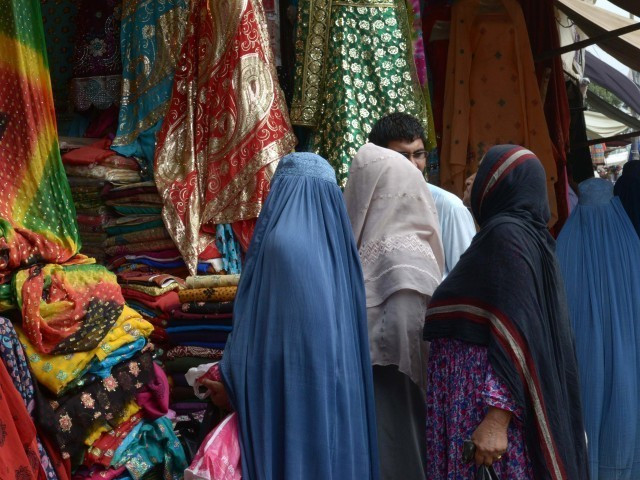Region for women, now and then
The year has not done much for the rights of women, says ANP leader Bushra Gohar

Social barriers for women persisted in 2015. Women in K-P and Fata, nonetheless, managed to push through some mighty glass ceilings amid threats to agency and body. There is hope 2016 will be less oppressive, less unsafe. Some of these women shared their thoughts on empowerment with The Express Tribune.

Women in society might feel like there is no one in their corner, but people like DSP Rozia Altaf are still fighting for them.
“People want to tie women down but we have to show them women are no less than men.” DSP Rozia Altaf has 10 stations under her wing, including Yakatoot and Hashtnagri; and she visits them without fear. “Every single second is risky but I love my work.”
She says there comes a time when women have to become aggressive and blunt, especially when working with men. “I have worn a cloak of rigidity to deal with men because it is necessary to do so in Peshawar.”

The year has not done much for the rights of women, says ANP leader Bushra Gohar. “The present federal and provincial governments have put women rights on the backburner.”
She adds in Fata, “It is a shame women are denied their fundamental rights and are forced to live under the draconian FCR.” Gohar adds, “The situation has gone from bad to worse because Fata has been used as a strategic space.”
She says women have been affected the most, as are children. “A whole generation has been pushed into darkness.”
K-P Assembly also shows little interest in women’s issues. The bills that should have been passed, says Gohar, are the early and child marriage bill, and the one on domestic violence.
However, she adds, the highlight of 2015 was the Election Commission of Pakistan’s verdict on PK-95, Lower Dir-II by-elections. The polls were declared null and void because women were barred from voting. “It is a major leap forward for women’s participation in the political process in K-P.”

Although she comes from a war-inflicted area, Noreen Naseer was brought up in a family in which women were educated.
Discussing the women of Fata, Naseer says a lack of education, cultural impediments, a patriarchal system and militancy hold them back. “Women in other parts of Pakistan have access to courts, but women in Fata don’t.”
Naseer recently submitted her doctorate thesis on ‘Afghan border areas, Fata and adjacent areas’ and is teaching at University of Peshawar.
Naseer says she opted for subjects such as conflict because she comes from an area engulfed in a political, social and economic vacuum – isolated from the rest of the country.

The year that has passed saw a surge in progress on paper, while little was done in reality. This remains a great problem, was the opinion of Saba Gul Khattak, an independent researcher.
“No development has been made in the women’s commission. Even the social welfare department, under which the commission comes, has not paid its rent for months.” Khattak adds, “If these policies [on women] are implemented, that in itself would be a big change.”
She questioned how a big chunk of the budget goes to combat terrorism but there is no evidence of the amount being spent on women and children who are hit by terrorism.

The appointment of Mehar Taj Roghani as deputy speaker of K-P Assembly and Raheela Durrani as speaker of Balochistan Assembly were the year’s highlights, says LAS Executive Director Rukhshanda Naz over the telephone.
“However, what had to happen in terms of women’s development didn’t take place: the domestic violence bill submitted in 2009 has not been passed yet.” She adds there was no work done in the legal field, and uninformed people work in institutions like the police force. “When a woman goes to the police to file a complaint they send her back, advising her not to take domestic issues out of the house.”
Published in The Express Tribune, January 1st, 2016.













COMMENTS
Comments are moderated and generally will be posted if they are on-topic and not abusive.
For more information, please see our Comments FAQ